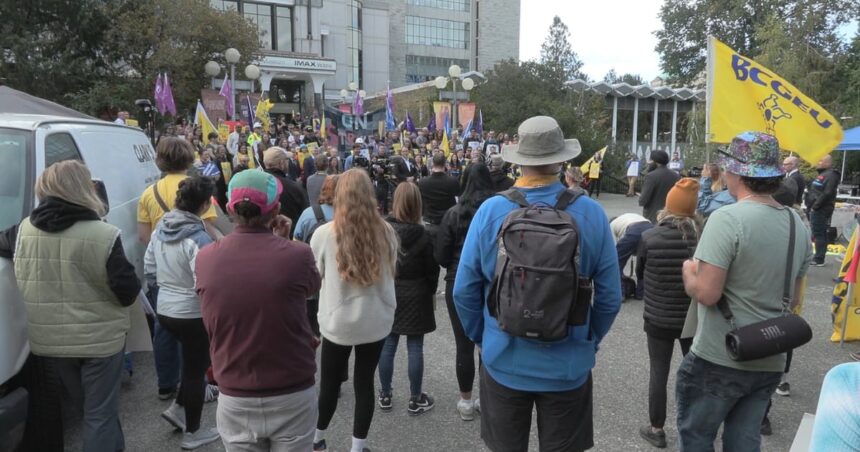In the shadow of the British Columbia General Employees’ Union (BCGEU) strike, small business owners are discovering they’ve become unexpected casualties in a labor dispute that shows no signs of immediate resolution. Victoria food truck operator Marissa Johnson has watched her daily revenue plummet by over 70 percent since picket lines formed outside government buildings where her mobile eatery, Pacific Platter, typically serves hundreds of lunch customers.
“This isn’t about taking sides in their dispute,” Johnson told CO24 News during a rain-soaked afternoon with just three customers visiting her truck. “I support workers’ rights completely, but nobody considered what happens to businesses like mine that depend on those office workers for survival.”
The BCGEU strike, now entering its third week, has emptied government buildings throughout Victoria as approximately 33,000 provincial employees participate in rotating job actions over wage demands and inflation protection. Union representatives maintain their position that government offers thus far fail to address the rising cost of living facing their members.
Finance data from small business advocacy groups indicates food vendors near government facilities are experiencing revenue losses between 50-80 percent. For operators like Johnson, who invested her life savings into her business following pandemic closures, the timing couldn’t be worse.
“I barely survived COVID. I took out loans I’m still paying back,” Johnson explained, gesturing toward her colorful food truck now parked in a nearly empty lot. “Each day this continues is another day I question if I can make rent next month.”
Local economic analysts suggest the broader impact extends beyond food trucks. The Victoria Chamber of Commerce estimates the strike has already cost the local economy approximately $5.2 million in reduced spending, affecting retail shops, cafes, and service businesses throughout downtown areas where government offices concentrate.
BCGEU spokesperson Thomas Rayner expressed sympathy for affected businesses but remained firm on the union’s position: “Our members also frequent these establishments and value them greatly. However, the government’s unwillingness to present a fair offer has forced this situation.”
Provincial negotiators maintain they’ve offered reasonable terms given budget constraints. Labor Minister Rachel Chen told reporters yesterday, “We recognize the impact on communities and businesses, but must balance fair compensation with fiscal responsibility to all British Columbians.”
For Johnson and others caught in the middle, solutions seem distant. Some food truck operators have attempted relocating to busier commercial districts, but face challenges with permitting restrictions and competition from established restaurants already serving those areas.
“We’re exploring options like corporate catering and weekend events,” Johnson said, “but it doesn’t replace consistent weekday business. Each day, I watch loyal customers apologetically cross picket lines or simply stay away.”
Community support initiatives have emerged, with some local residents organizing “Support Small Business” days, encouraging people to make special trips to patronize affected vendors. While appreciated, business owners say these gestures only partially offset substantial losses.
As negotiations between the BCGEU and provincial government continue behind closed doors, the unintended economic ripple effects highlight broader questions about how labor actions impact local economies. Will future disputes incorporate strategies to minimize collateral damage to uninvolved small businesses? For entrepreneurs like Johnson, the answer can’t come soon enough.











